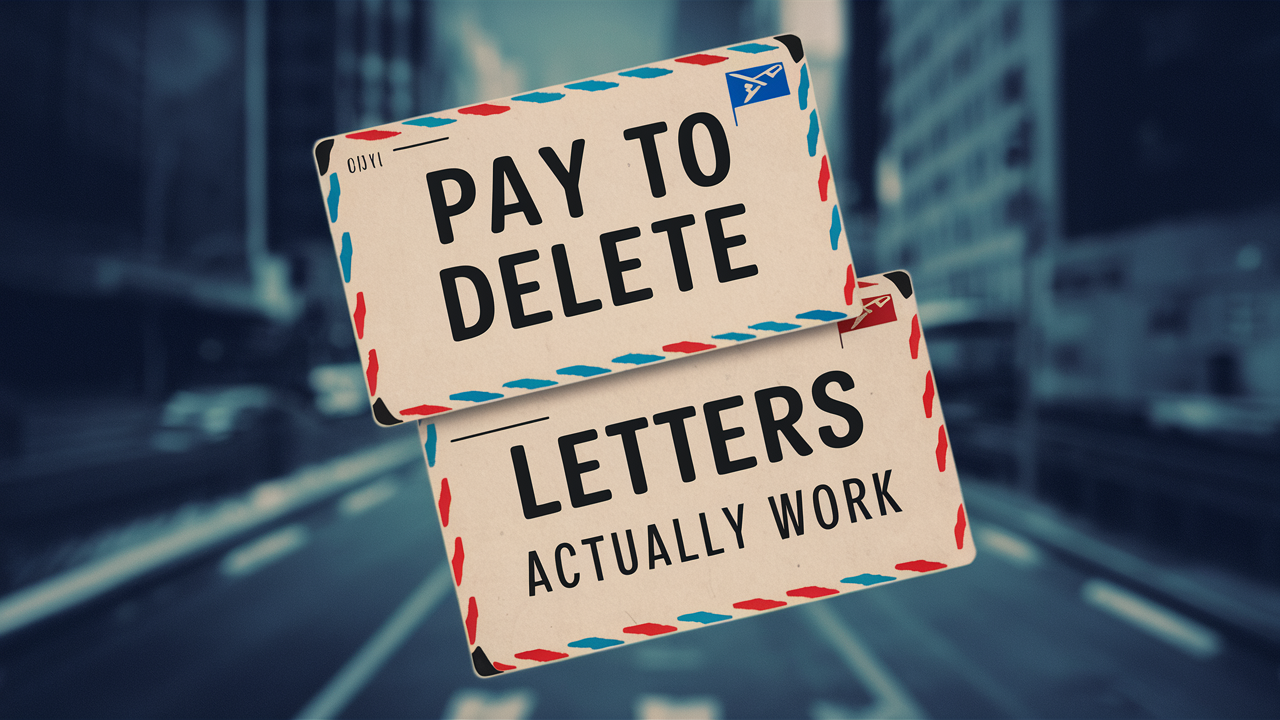-
Posted on: 16 Jul 2024

-
Do Pay to Delete Letters Work?
Within the field of credit restoration, the phrase "pay to delete" is sometimes used as a tactic for raising a credit score. Under this strategy, unfavorable entries on a credit report are eliminated in return for payment via negotiations with creditors or collection agents. Does paying to erase mail, nevertheless, work? Let us explore the idea, the method, and its success.
Understanding Pay to Delete
A pay-to--delete agreement is a documented contract between a creditor or collection agency and a debtor. Under this arrangement, the debtor promises to pay a designated sum to settle a debt; in exchange, the creditor or collector promises to delete the related bad information from the debtor's credit file. For those trying to raise their credit ratings by removing negative points, this might especially be enticing.
The Process of Pay to Delete
- Finding the debt that is compromising your credit score comes first. Extensively review your credit report to identify bad entries, especially those in collections.
- Speak with the collection agency or creditor. See the creditor or collection agency to go over your debt. One should speak professionally and honestly. Show your readiness to pay the loan, but also ask for a pay-to-delivery deal.
- If the creditor or collector agrees to review your offer, discuss the conditions. Tell them exactly how much you are ready to pay, and ask that they promise to remove the bad note from your credit report upon payment.
- Before making any payment, be sure you have a formal agreement detailing the details of the pay-to--delete arrangement. This guarantees the enforceability of the agreement and protects you.
- Make the payment as advised after you have a formal agreement. For your records, note this transaction along with receipts and the signed agreement.
- Watch your credit report after the payment to be sure the bad entry has been eliminated. Changes take some time to show on your credit record, hence patience is rather important.
Effectiveness of Pay to Delete Letters
- Although pay-to-remove letters have several uses, their effectiveness is not assured. These elements should help you to think through: Not all collectors or creditors are ready to participate in pay-to-delete arrangements. Some, particularly bigger businesses that adhere rigidly to regulatory rules, may have policies prohibiting it.
- Legal and Ethical Issues: Pay-to-delete arrangements might have dubious ethical and legal standing. Although it's not unlawful, certain credit reporting companies might object to this approach. Should creditors fear these agreements may result in compliance problems, they may be reluctant to participate in them.
- Effect on Credit Score: You should be aware that the effect on your credit score might differ even if a pay-to-erase plan becomes well. Eliminating a collection account could improve your score, but it won't have the same impact as actually paying off the debt—which some creditors might see as a negative mark.
- Possibility of Future Debt: Although a pay-to-delete plan could help your present credit status, it is important to deal with the fundamental problems behind the debt. Just closing one bad account does not ensure a future free of credit problems.
Alternatives to Pay to Delete
Should a pay-to-erase contract prove unworkable, think about alternative ways to raise your credit:
- Ask for a goodwill deletion, wherein the bad label based on your past is removed, should you have a solid payment record with a creditor but miss a payment.
- Credit Repair Services: Should navigating the procedure seem overwhelming, credit repair services may help you negotiate with creditors and dispute credit report errors.
- See a credit counselor to get specific plans for debt management and credit score improvement.
For some people trying to raise their credit scores, pay-to-erase letters may be a helpful tool; yet, their value depends on creditor rules and personal situations. Approaching the procedure with reasonable expectations and thinking through other credit repair techniques is very vital. You may improve your financial situation by knowing your choices and keeping honest contact with creditors, thus acting early.
Call now for expert credit repair services: (888) 803-7889
Read More:
How to get a late payment removed from credit?
How to get a 700-credit score in 30 days?
Is there a debt forgiveness program?




